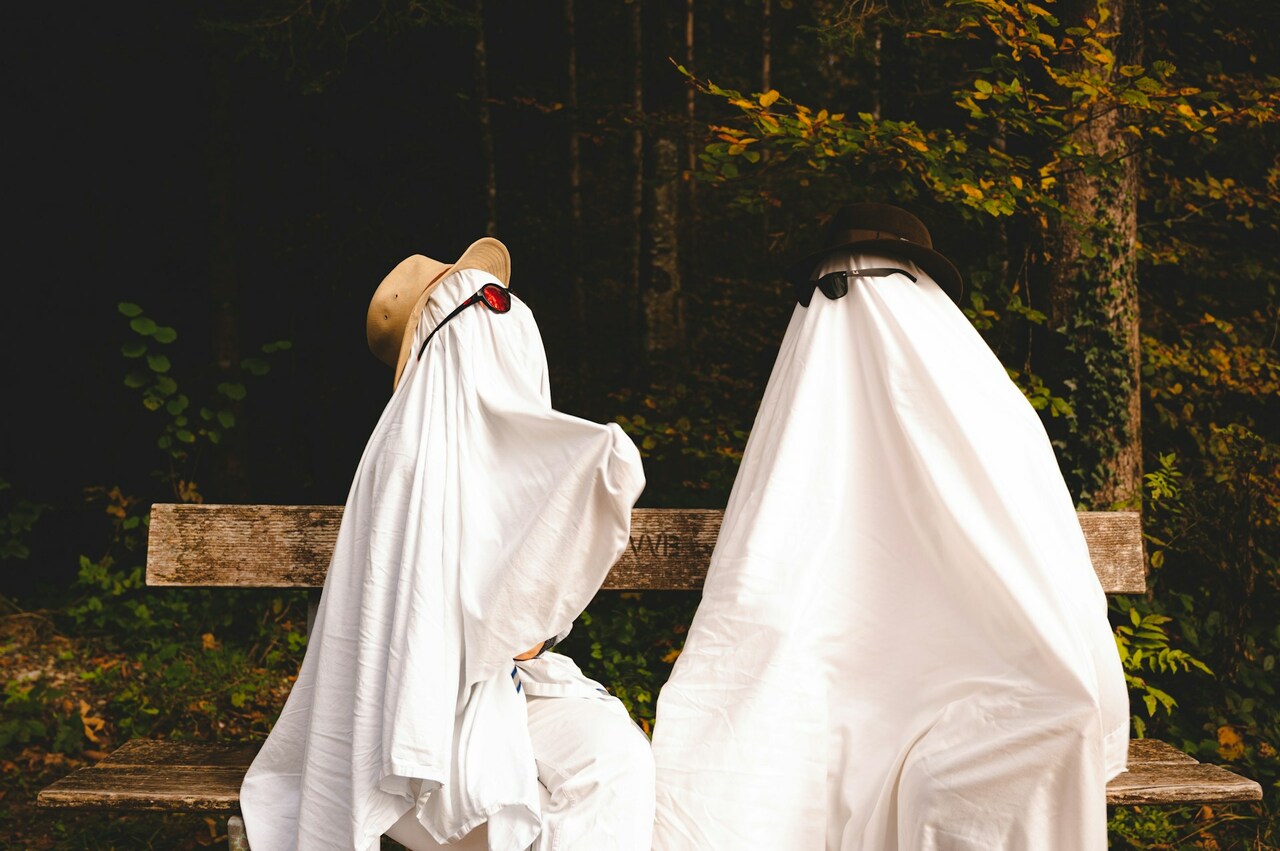Surviving, even enjoying, conferences

As a child, I thought that a biologist researcher spent all day wandering the woods alone, looking for new animals, and when she/he wasn't discovering the latest snout beetle, she/he was writing books. Becoming a researcher myself, I had to realise that there is absolutely no part of my job that I do completely alone, and that you need more than just wandering in the woods and writing books to have a successful research career. For example, other people: colleagues with different expertise and ideas, people to work with. In other words, you need to network and collaborate. On a previous post you read about how to increase visibility, in particular for early-career researchers. In this article, we'll talk about another form of networking: going to a conference, and surviving the conference.
There's that moment when you're at the first coffee break of a conference, surrounded by unfamiliar faces, with everyone fidgeting. You are clutching your coffee, trying to make out everyone's name tags, just in case someone's name rings a bell. For me, this is a gut-wrenching part of the conference, and I know I'm not alone. It just helps to know that by the next day there will be conference buddies I know at least by face, even if I haven't managed to remember their names, and that when I come back to the same conference next year, I will have friends there. Social anxiety or not, the conference can be survived, and it is worth it, because it is very rewarding to attend. Not only can you follow the latest developments in the field, but you can also meet future collaborators and build a community of peers. By listening to the presentations, you can find a speaker whose expertise might be useful to you, or who is working on a similar topic to yours, and you will be welcomed to contact them later.
In addition, the more informal parts of the conference also give us the opportunity to talk about things that are not necessarily professional, but that affect our lives, with people who finally understand our problems. During my PhD, the other PhD students attending the conferences were a community of peers, with whom I could discuss the downsides of being a PhD student and get ideas on how to make the PhD suffering better. It was also a way for growing up with the research students who would form the future core of my profession, thanks to the conferences I attended every year.
To enjoy all these good things, however, one must also enjoy the conference, or at least survive it. How can we make the most of the conference socially? How can we get to know people and make coffee breaks full of (initially) unfamiliar faces less anxious?
You are not alone
First of all, let's not forget that standing around lost in a coffee break is a basic experience for any researcher. We've all been there, and we all cringe when we find ourselves in a new social environment. Not just researchers, but everyone, regardless of profession, feels uncomfortable when thrown into a pool of strangers. So, we are not alone in our bad feelings. Coffee breaks and social activities will be the main networking part of the conference. Once you get over the initial anxiety, everything will be much better and by the last day you will be more confident in the social space.
Dare to take the initiative
You can ease anxiety by approaching someone yourself to talk. Just speak to the person closest to you, or smile at the person in front of you while standing in the coffee queue. The other person will usually be grateful that the awkward silence has been broken, and after some small talk you can talk about something meaningful. You might as well prepare in advance with questions to ask: What did you think of today's keynote speaker? How have you been enjoying the conference so far? and What brings you to this event? My favourite questions are What was the most surprising thing you heard/learnt today? and Tell me about your latest research.
Skip the small talk
You don't have to use small talk just because it's polite. If you don't like chatting about the weather, or you don't want to waste a short coffee break with small talk, feel free to open up with the topic you want to talk about. The other person will probably be happy to hear you suggest an interesting topic.
Find something in common
Research has shown that two strangers become friends more easily if they can find something in common, even something as small as the colour of their T-shirts. Try to find a common acquaintance, a shared interest, or anything in common with the person you're talking to.
You don't have to know everyone
At a conference, no one expects you to talk to everyone, get to know everyone and remember everyone. Be selective and talk to people you feel are relevant. Before the conference, you can even look at the names of the participants, and check out the ones you really want to meet, because you are interested in their topic or see them as potential collaborators. Talk to and get to know people you're happy to do that with, and if you feel you can't fit any more people in your head, feel free to stop meeting them.
Alternative strategies for networking
Want to get to know the local research group better? Ask the organisers if there is anything you can do to help or volunteer at the conference. This will give you a better insight into who is organising the conference, what the team atmosphere is like, and you will be better noticed by the organisers and other conference participants.
If you don't like to network live, change the channel. Do you prefer chatting to people or would you be more comfortable in a Zoom meeting after the conference? Swap contact details or tag each other on your preferred social media and catch up after the conference. I have a colleague who reports on each presentation in short tweets, so she is noted by others who use X/Twitter, and tagged speakers also tend to engage her in conversation live or on X/Twitter.
Know your limits
You don't have to be everywhere all the time, so feel free to skip something if you need a break. If you're feeling drained of your social element, nothing will happen if you go for a walk on your own instead of a coffee break that day. If you need to sleep, go to bed earlier rather than sleepily trying to make it through the group dinner. If you are well rested, both physically and mentally, you will enjoy the conference more and will be able to spend it more usefully.
Photo by Giulio Fabi on Unsplash





Join the FEBS Network today
Joining the FEBS Network’s molecular life sciences community enables you to access special content on the site, present your profile, 'follow' contributors, 'comment' on and 'like' content, post your own content, and set up a tailored email digest for updates.